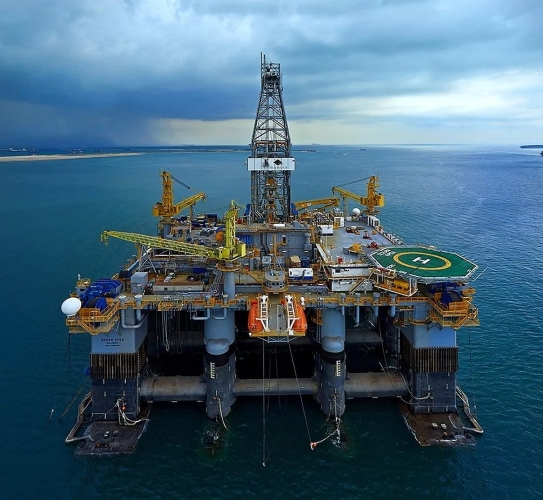Services Core
OffShore Exploration.

Overview
Offshore exploration is a dynamic and challenging field that demands the expertise of geologists to unravel the secrets hidden beneath the ocean floor. As a geologist specializing in offshore exploration, my role revolves around understanding the geologic structures and formations that hold valuable resources, primarily focusing on hydrocarbons.
Seismic Data Interpretation:
One of the key responsibilities involves the interpretation of seismic data. Geologists meticulously analyze data obtained through seismic surveys, which provide a detailed picture of the subsurface geology. By identifying seismic reflections and anomalies, I contribute to mapping potential hydrocarbon reservoirs and determining drilling locations.
Stratigraphic Analysis:
Examining the stratigraphy of the seabed is crucial in offshore exploration. Geologists study the layers of sediment and rock to decipher the geological history, identifying potential source rocks and reservoirs. This analysis aids in predicting the quality and quantity of hydrocarbons that may be present.
Core Sampling and Well Logging:
Physical samples are essential for a comprehensive understanding of the subsurface. Geologists participate in the collection of core samples during drilling operations. These samples provide direct insight into the composition of the Earth's layers and aid in characterizing reservoir properties. Well logging is another integral aspect, involving the recording of geologic formations encountered during drilling.
Geochemical Analysis:
Understanding the geochemistry of the subsurface is pivotal. Geologists employ various techniques to analyze rock and fluid samples obtained from wells, helping to determine the type and maturity of hydrocarbons present. This information is vital for assessing the economic viability of a potential reservoir.
Collaboration with Multidisciplinary Teams:
Effective collaboration is key in offshore exploration. Geologists work closely with geophysicists, engineers, and other specialists to integrate data and develop a comprehensive understanding of the subsurface environment. This multidisciplinary approach is essential for making informed decisions throughout the exploration process.
Risk Assessment and Decision-Making:
Geologists play a crucial role in risk assessment, evaluating geological uncertainties and potential challenges in drilling operations. By providing valuable input, geologists contribute to decision-making processes, helping to minimize risks and optimize exploration efforts.
Environmental Considerations:
Offshore exploration is not just about resource extraction; it also involves a commitment to environmental stewardship. Geologists assess the environmental impact of exploration activities, ensuring that drilling operations are conducted responsibly and in compliance with environmental regulations.
Summary:
In the ever-evolving landscape of offshore exploration, geologists act as pioneers, delving into the depths of the Earth's crust to unlock the energy resources vital to our modern way of life.
